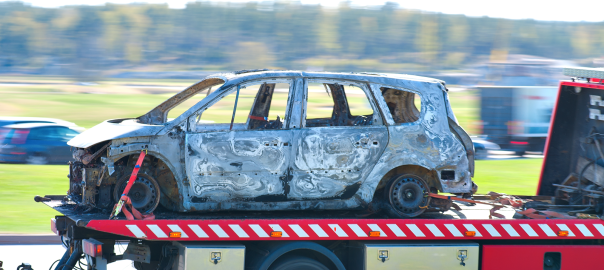Hitching a trailer to your truck and hauling out all your belongings on the open road sounds exhilarating for many people – but if you’re not skilled with long heavy tows it can be an incredibly complex process. There’s 8 major mistakes that people usually make when they’re towing. If you want to avoid paying extreme fees for mistakes, educate yourself on this list of potential mishaps before you embark.
Having the Wrong Weight Distribution Bars
The weight distribution bars between your vehicle and trailer have to be set up correctly; otherwise, the vehicle and the trailer will be bouncing away from each other – causing a bumpy ride, and potential damage to the trailer’s frame and hitch. The size of the weight distribution bar shouldn’t matter – many tunable chained bars come in many different levels of strength or weight – if you use the right bar size, it will be completely parallel to the frame of the trailer.
Incorrect Loading
You need to make sure that whatever load you’re putting on your vehicle is properly balanced. Find out what your vehicle’s weight restrictions are, and make sure to conform to them – if you don’t, your towing trailer won’t be very long for the road.
Keep an Eye on the Engine Meters
The single most common mistake that people make when towing is by overworking their vehicle to the point of breakdown. You can cause a plethora of engine problems by overstraining your vehicle – potentially stranding you on the road, and causing you to make costly repairs on your vehicle’s transmission. Make sure to be aware of your vehicle’s pressure meters, exhaust gas temperature meters, and general temperature meters to ensure that everything is going correctly.
Check your Brakes
Trailer brakes don’t operate like brakes inside a typical vehicle – they require manual adjustment. Trailer brakes often have the same amount of wear over time as any other break, so make sure to test them for damage once in awhile, or before a long trip.
Going too Fast
We understand how exhilarating the trip might be, however it’s of primary importance that you drive at a slow and steady pace. Speeding up the speed is something that you definitely don’t want to do – it will rapidly degrade the operating mechanisms of your tow vehicle.
Make sure you have the correct Ball and Ball Mount
There’s three different ball sizes – one and 7/8ths inches, 2 inches, and 2 and 5/16th inches – each which comes with their own weight ratings. If you use the incorrect mount or ball for your vehicle, it will pitch the trailer too high or low on your axles, putting too much aggravation on your tires and brakes which affects the car’s ability to break at all. If you’re using more than one trailer, use more than one mount.
Keep all mechanisms lubricated
You should treat every aspect of your trailer/vehicle rig as a well-oiled machine – you can prevent errors, malfunctions, or accidents by greasing all pivots and axles.
Keep the right Pressure on Tires
If you make sure that your vehicle and trailer have the correct tire pressure, the tires will wear at an even pace, reducing the likelihood of overheating causing blow-outs. This situation is specifically dangerous if it occurs in the back tires of the trailer – so pay particular nots to their pressure. Strangely, tires degrade at a more rapid pace when they’re not being used – before you leave on your trip, check each tire closely for damage / correct pressure.

